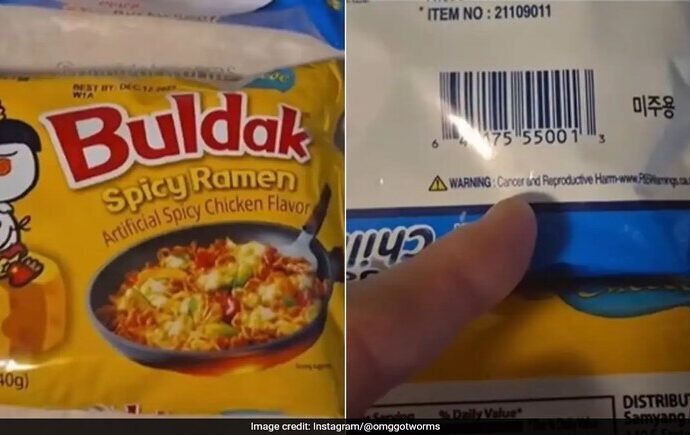Report
Ramen noodles have long been a popular comfort food — quick to prepare, flavorful, and highly adaptable. However, a recent viral Instagram video has raised alarm over potential health risks linked to the snack. The video shows a warning label on the back of a ramen noodle packet that reads: “Warning: Cancer and Reproductive Harm.”
The clip quickly spread across social media, sparking widespread concern. Many users questioned how such a warning could be linked to an everyday food item. Some pointed out that packaging materials, such as heat-printed wrappers, may contain chemicals that can leach into the food or skin, potentially exceeding safe exposure levels — which explains the need for such labels.
Others highlighted health risks associated with regular consumption of spicy or highly processed foods, noting that frequent intake could increase the likelihood of long-term health issues like cancer. However, many agreed that eating ramen occasionally is unlikely to pose serious harm, as with most processed foods, when consumed in moderation.
Experts Weigh In: What Makes Ramen Risky?
Nutritionists and health experts stress moderation when it comes to instant noodles. The main concern lies in the excessive sodium levels and the use of additives like MSG (monosodium glutamate). The U.S. Food and Drug Administration (FDA) confirms that the seasoning packets in ramen can contain up to 90% of the recommended daily sodium intake. The risks go beyond just salt. MSG, a common flavour enhancer in ramen, has been linked to adverse reactions in some people, including headaches, nausea, muscle tightness, and chest pain. While not everyone is sensitive to MSG, experts advise those who are to avoid it entirely.
What’s Really in a Bowl of Ramen?
Health authorities point out that instant noodles are typically low in fibre and protein but high in saturated fat and artificial additives. According to the U.S. Department of Agriculture (USDA), a standard 81-gram serving of ramen contains around 14 grams of total fat and 6.58 grams of saturated fat, roughly 33% of the daily recommended limit. While instant ramen may be satisfying and convenient, experts recommend enjoying it occasionally and reading nutrition labels carefully, especially for those with health concerns or dietary restrictions.
Source: Mathrubhumi
 Food Manifest
Food Manifest 


















